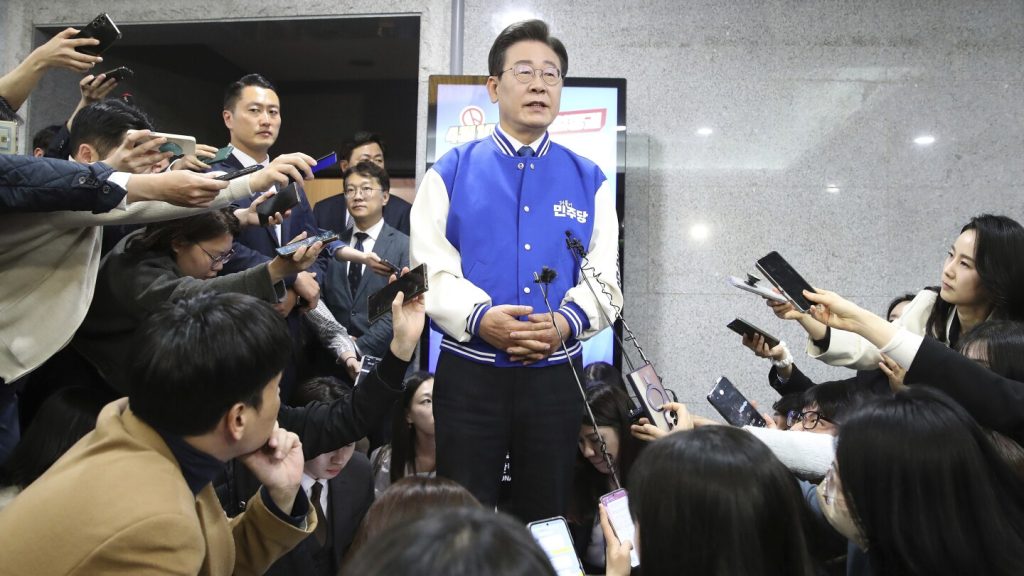South Korea’s liberal opposition parties are predicted to win a significant victory in the parliamentary election, according to initial exit polls. The Democratic Party and its satellite party are expected to win a combined 178-197 seats, making President Yoon Suk Yeol a lame duck for the remainder of his term. The ruling People Power Party is projected to win 85-105 seats, signaling a possible setback for Yoon’s domestic agenda due to the conservative party’s defeat. The results of the election could have implications for Yoon’s presidency and his relationship with the liberal opposition-controlled parliament.
The voter turnout for the election was tentatively estimated at 67%, the highest in a parliamentary election since 1992. The campaign leading up to the election was marked by toxic rhetoric and mudslinging between the conservative and liberal parties. President Yoon, a former top prosecutor who took office in 2022, has been facing low approval ratings and challenges from the opposition-controlled parliament. The outcome of the election could potentially give the opposition parties the power to pass bills vetoed by the president and even impeach him if they gain a majority of 200 seats.
The rival parties, including the Democratic Party and the ruling People Power Party, engaged in heated exchanges during the campaigning period. Han Dong-hoon of the ruling party expressed disappointment at the exit poll results, while Democratic Party members celebrated the expected victory. The sharp divide between the parties has deepened since the 2022 presidential election, in which Yoon defeated Lee Jae-myung, the current Democratic Party leader. The political landscape in South Korea remains polarized, with both parties resorting to abusive rhetoric and insults.
The controversial policies of President Yoon, such as the increase in medical students despite protests from incumbent doctors, have sparked controversy and widespread strikes within the medical community. The government’s handling of rising prices of agricultural products and other goods has also faced criticism, further adding to the challenges faced by Yoon’s ruling party. The election results are likely to shape the direction of South Korea’s politics for the next three years, with potential implications for the presidential race in the future. As the opposition parties secure a significant victory, they may seek to challenge President Yoon’s policies and push for their agenda in the National Assembly.
The exit poll results indicate a potential political deadlock in South Korea, with both ruling and opposition parties unable to pursue their agendas unilaterally. The conservative and liberal factions are expected to engage in protracted negotiations and confrontations, which could hinder progress on key issues facing the country. With President Yoon facing increased scrutiny and challenges from the opposition, the political landscape in South Korea remains volatile and uncertain. The outcome of the parliamentary election will likely have far-reaching implications for the future of the country’s political leadership and policy direction.


